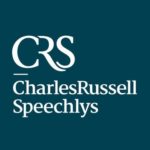Wills & Trusts Law Reports | Autumn 2022 #188The parties had started a relationship in 1990. Mr Hudson had moved into Ms Hathway’s home and become joint owner. They did not marry and had two sons. The home was sold and another bought in joint names. In 2007 they purchased Picnic House with a mortgage. It was again purchased in joint names with no declaration of trusts. They separated in 2009, with Ms Hathway staying at Picnic House. The mortgage was converted to an interest-only mortgage. It continued to be paid from a joint account into which both of their salaries had been paid.
In July and August 2013 there was an exchang...
Naveed Ali outlines the development of the constructive trust principle to aid cohabitees ‘The court should establish the intentions of the parties with evidence; where intention cannot be inferred, the court may impute an intention which the parties may never have founded.’ The regulation of proprietary rights after a breakdown of marriage is extensive: the …
Continue reading "Constructive trusts: Keeping up with the Jones"
This post is only available to members.
Don McCue examines the lessons from Curran v Collins [2015] ‘Two issues currently need to be resolved as a matter of some urgency… First, in no-agreement cases, whether the Rosset threshold requirement should be relaxed. Second, the question of inference or imputation needs clarification.’ Claims on constructive trust principles to a share of the beneficial …
Continue reading "Constructive Trust Claims: Excuses, detriment and imputation"
This post is only available to members.
Wills & Trusts Law Reports | March 2016 #157This was an appeal against a decision that Ms Curran, the appellant, had not acquired a beneficial interest in property in the sole name of Mr Collins, the respondent. Mr Collins and Ms Curran were in a relationship from about 1978 until 2010. However, she did not move in to live with Mr Collins until 2002, having maintained a close relationship with her own family.
From about 1994 onwards, the couple bred Airedale terriers. Over the course of the relationship, Mr Collins owned three properties in his sole name, referred to as the Bendfont flat, the Feltham house and The Haven. He...
Wills & Trusts Law Reports | March 2016 #157This appeal concerned a dispute over the beneficial ownership of the property whose legal title was at all times held by the appellant alone. At trial, the judge made the following findings:
- (i) A former property had been purchased in the joint names of the respondent and appellant in 1987.
- (ii) In 1991 the legal estate in that property was transferred into the sole name of the appellant to allow her to claim benefits as though she was a single woman living alone. The outstanding mortgage on that property at the time was converted to an endowment secured by a policy...
Sukhninder Panesar discusses Barnes v Phillips [2015], which has lessons on the role of inference and imputation in shared ownership disputes ‘An inference is an important exercise in establishing whether the parties’ original beneficial ownership has changed, and imputation is integral to establishing the exact shares once a finding of change in intention is established.’ …
Continue reading "Co-Ownership: Share with care"
This post is only available to members.
Sukhninder Panesar examines a case where one of the beneficiaries to a common intention constructive trust of land had been involved in an illegal purpose ‘O’Kelly provides an excellent example of when a constructive trust will be imposed in cases where the legal title is taken in the sole name of one of the cohabiting …
Continue reading "Common Intention Constructive Trusts: The role of illegality"
This post is only available to members.
Wills & Trusts Law Reports | December 2013 #135The transcript of this judgment is reported in part from para 164 onwards and starts with a discussion of the law. No part of the report provides a factual narrative.
Held (allowing the wife’s claim for financial relief):
The court had power on divorce to order a party to the marriage to transfer to the other party such property as may be so specified to which that party was entitled, either in possession or reversion. In this case almost all the wealth created by the husband during the course of the marriage was held through offshore company structures and the ques...
Lyndsey West and James Lister revisit cohabitants’ property interests on separation in the Supreme Court decision in Jones v Kernott ‘While the decision as to the result in Jones was unanimous, the conclusion was reached in different ways. The principle source of disagreement revolved around the question of whether it was open to the court …
Continue reading "Trusts And The Family Home: No clarity for cohabitants"
This post is only available to members.
Caroline Watson and Matthew Feldman discuss the impact of Jones v Kernott in cases where there is an express declaration of beneficial interests ‘The question now being asked by practitioners up and down the country is whether the judiciary will again be prepared to step in to clarify the law in cases where there is …
Continue reading "Trusts: Clear intentions"
This post is only available to members.






